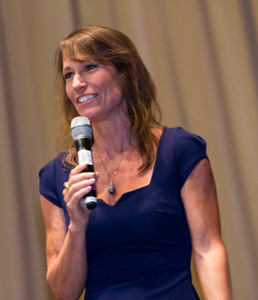The federal government is raising the premiums and lowering the loan limits on its reverse-mortgage program. It may sound like a take-away for seniors, but according to the Housing and Urban Development (HUD), the changes are needed to protect the Federal Housing Administration’s (FHA) entire insurance fund.
The HUD says the “home equity conversion mortgage” or HECM is a huge drain on the fund, and without a quick fix, the fund will not have the reserves it needs to insure all of its single-family loan programs.
HUD Secretary Ben Carson said in a statement, “Fairness dictates that future HECM loans do not adversely impact the overall health of FHA’s insurance fund, which supports the financing needs of younger, mostly first-time homeowners with traditional FHA mortgages.”
The federal reverse-mortgage program is designed to help seniors stay in their homes and “age in place” by allowing them to get a loan on their equity from a private lender. The FHA insures that loan, and with a rise in foreclosures, and other problems, HUD says the program is losing billions of dollars.
Reverse Mortgage Losses
HUD is estimating the loss for last year at $7.7 billion, and it expects it to grow to as much as $12.5 billion by the year 2023. HUD says that home prices and interest rates have made the program volatile. There’s also been an increase in foreclosures among reverse-mortgage holders which has put a drain on the program.
HUD says the changes will help put the program on better financial footing by requiring a larger upfront loan insurance fee that will be offset by a lower annual fee going forward. The initial fee has been just .5 percent of the value of the home or the loan limit. The borrower will now have to pay 2.5 percent, with a 0.5 percent annual fee. The annual fee was previously 1.25 percent.
The second big change, starting October 2, will limit the amount a senior can borrow. The formula is complicated. It’s based on age and interest rates. The Washington Post had a few examples. It reported that a 62-year-old with a 5 percent interest rate on the loan could borrow 41 percent of the home’s equity. That’s about 11 percent less than a previous limit of 52 percent. For someone who’s 82-years-old, the limit would drop from 60 percent to 51 percent.
Effect on Seniors
The new rules will “not” affect current borrowers, but senior advocates are worried it will make it tough for seniors to get the loans they need. Ira Rheingold of the National Association of Consumer Advocates is blaming HUD for the losses. It says the program was poorly managed, with rules that put borrowers on a path to foreclosure.
Rheingold cited one example in The Washington Post, saying HUD encouraged lenders to take younger spouses off the loans so the older spouse could increase the loan limits under the “age” requirements for the program. But by doing that, when the older spouse died, the younger spouse was no longer on the mortgage, and that has led to foreclosure on the surviving spouse.
That’s not the only reason for the high number of foreclosures among reverse-mortgage borrowers. The Washington Post reports that defaults are also happening because seniors don’t realize they need to keep paying things like property insurance and taxes. Or they run out of money, and can no longer afford to pay those bills.
Tens of thousands of reverse mortgages are at risk of foreclosure because of those payment defaults. HUD says as many as 90,000 reverse mortgage holders were at least a year behind on those payments during the 2017 fiscal year.
HUD tightened qualification requirements in 2015 to make sure borrowers can make all the necessary payments. Before, borrowers only needed to be 62 years of age, with equity in their homes. Now, lenders must do a financial assessment on applicants to determine if they can afford to pay other expenses like property taxes, home insurance, and home maintenance costs.
The reverse mortgage program has been in place since 1989. HUD doesn’t insure “all” reverse mortgages, but The Washington Post reports that it insures “most” of them.
This article was originally published on Real Wealth network on September 29th, 2017.
Enjoyed this article? Sign up for your FREE Think Realty membership to receive access to membership only content, benefits, and stay up to date on our upcoming events.
Kathy Fettke is the founder and co-CEO of Real Wealth Network. She can be reached at kathy@realwealthnetwork.com.
























0 Comments